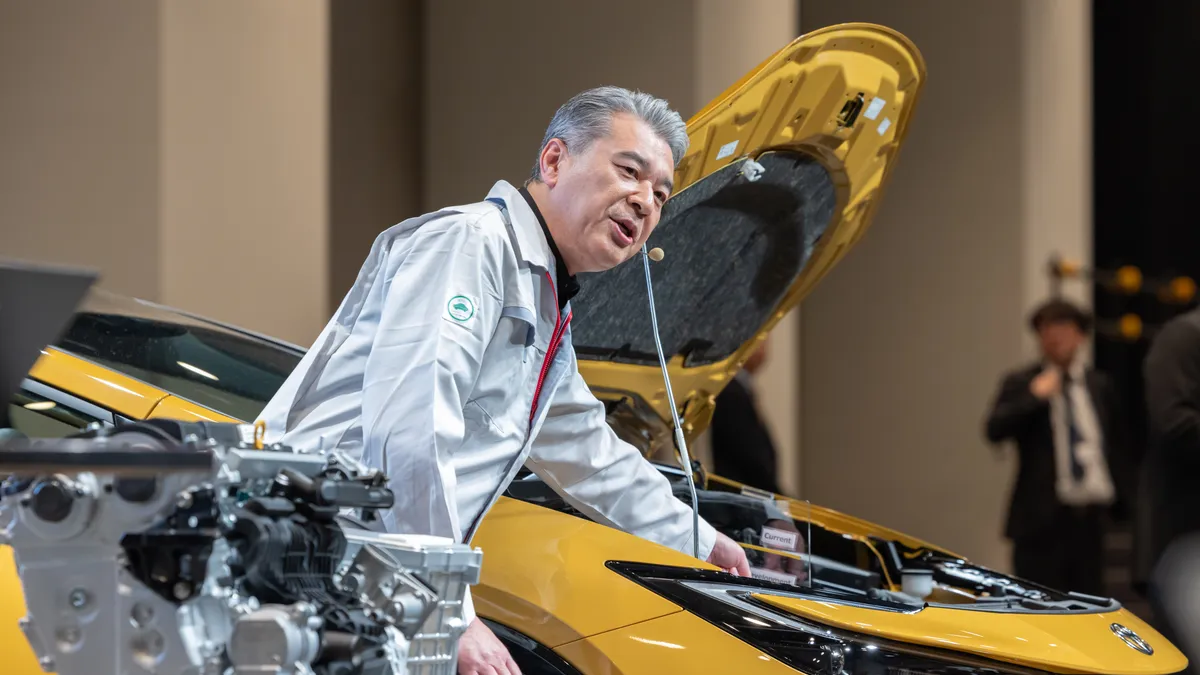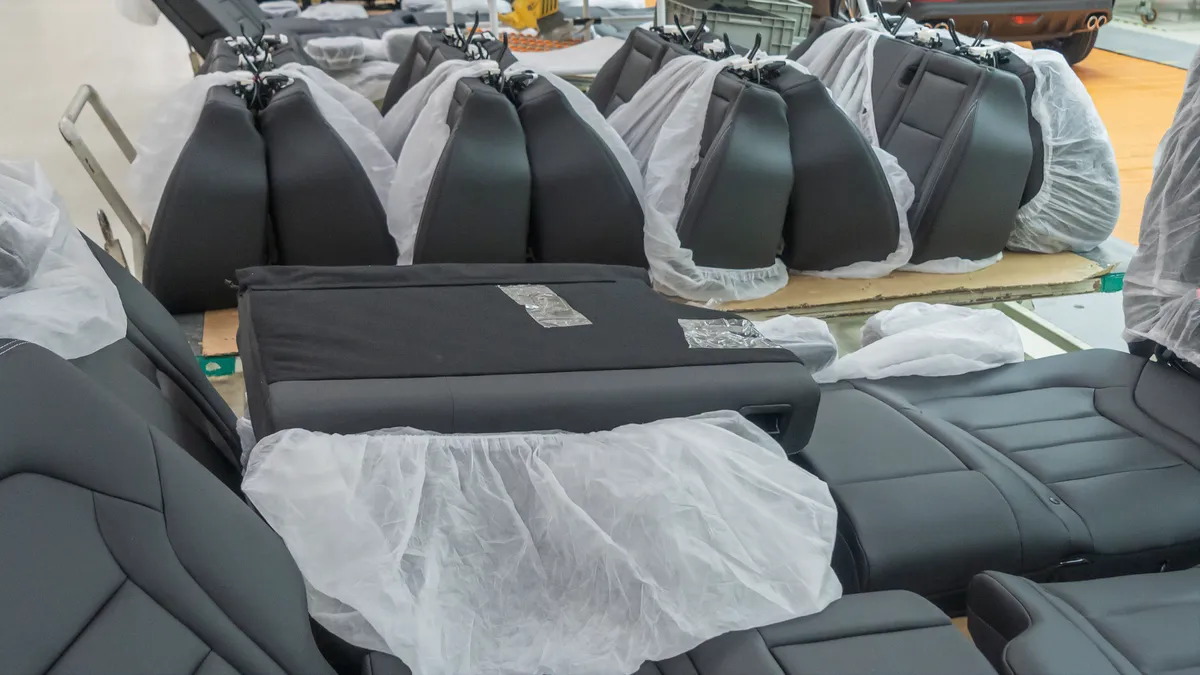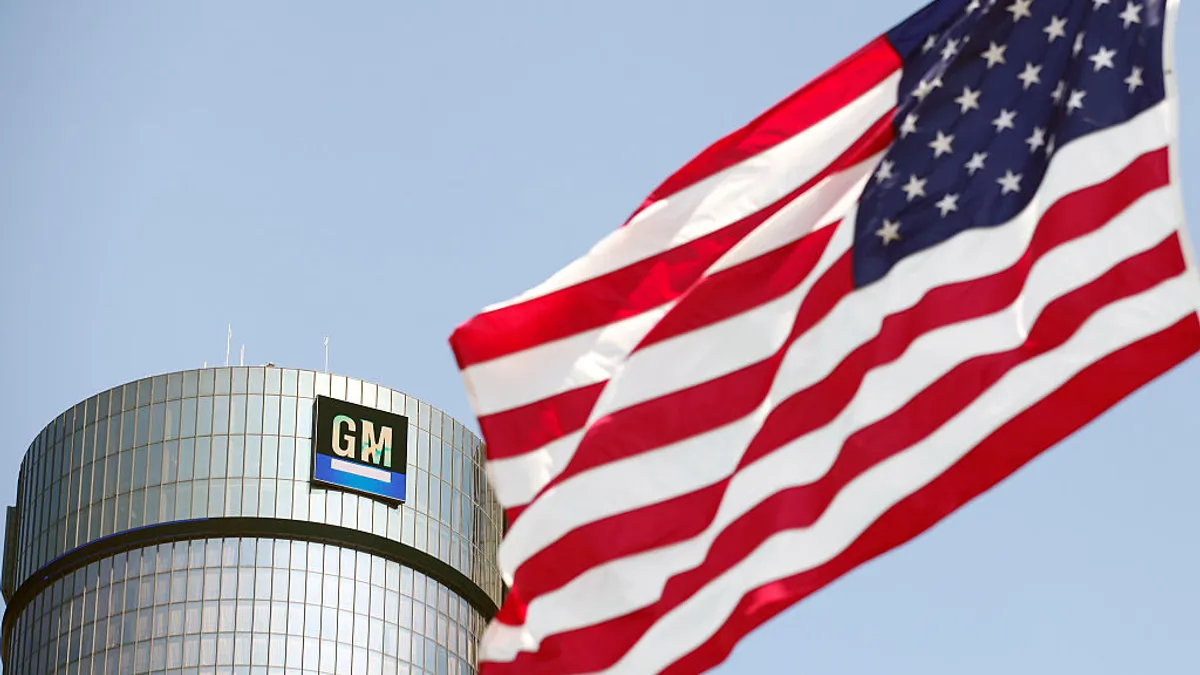Dive Brief:
- Toyota, Subaru and Mazda have jointly announced plans to develop new advanced gas-powered engines that will be optimized to better integrate with hybrid-electric powertrains or run on carbon-neutral fuels, the three automakers announced in a press release Tuesday.
- The new engines will be more compact than existing versions, allowing for vehicles to have lower hoods with better aerodynamics to improve efficiency.
- The advanced engine technology will support the development of new hybrid vehicles as an interim step for reducing carbon emissions, as the three automakers pursue their long-term electrification plans.
Dive Insight:
The respective engine development projects are viewed as “friendly competition” among the three automakers. According to Toyota, Subaru and Mazda share its dedication to achieving carbon neutrality and advancing Japan's auto industry.
Several other legacy automakers, including General Motors, Ford Motor Co. and Hyundai have recently announced plans to scale back the production of electric vehicles to focus more on hybrid technology as a way to meet increasingly stricter emissions requirements. For consumers, hybrid vehicles with improved fuel economy are viewed as an attractive alternative to more expensive EVs, especially as charging infrastructure is built out.
Last fall, Toyota announced that its popular Camry sedan would only be available in the U.S. with a hybrid powertrain starting with model year 2025. Toyota Motor North America EVP of sales Jack Hollis defended the automaker’s hybrid vehicle strategy during a virtual Automotive Press Association meeting last year, saying that consumer demand isn’t yet strong enough for EVs and they are currently more expensive than both internal combustion engine vehicles and hybrids.
Toyota views its collaboration with Subaru and Mazda as an opportunity to develop engines that are “optimized for the electrification era,” according to a presentation by Toyota CEO Koji Sato.
“In order to provide our customers with diverse options to achieve carbon neutrality, it is necessary to take on the challenge of evolving engines that are in tune with the energy environment of the future,” Sato said in the press release.
As part of Toyota’s engine technology commitment, the automaker is developing two new low-displacement inline 4-cylinder engines based on two development concepts. Toyota aims to achieve greater efficiency by pairing the engines with an electric powertrain. One benefit to this effort is that the gas engine could be made smaller, which provides greater flexibility for vehicle designers.
Mazda will also develop a new version of its unique rotary engine to pair with an electric powertrain. The automaker shared some details of two new hybrid concept vehicles using a new “Rotary-EV” system, including a transversely mounted layout using one rotary engine paired with an electric drive unit. The other design uses dual rotary engines, which could be used for a high-performance hybrid sports car.
“Given the rotary engine's compatibility with electrification and carbon-neutral fuels, Mazda will continue to develop the technology through co-creation and competition to ensure it can contribute broadly to society,” President and CEO Masahiro Moro said in the press release.
Subaru’s next-generation hybrid system adds a battery and electric drive motor to its Symmetrical All-Wheel Drive system that’s currently used on all of its vehicles. Production of redesigned transaxles for the new system are slated to begin later this year.
Toyota and Subaru also aim for their future engines to use alternative fuels more efficiently to help contribute to their more widespread use, according to Sato. These include synthetic fuel, biofuel, and liquid hydrogen. As part of this initiative, Toyota will work with Idemitsu Kosan, Eneos and Mitsubishi Heavy Industries on projects for establishing a carbon-neutral fuel supply chain.
"Achieving a carbon-neutral society is a challenge that must be undertaken by all of Japan's industries and society as a whole,” said Atsushi Osaki, president and CEO of Subaru.














